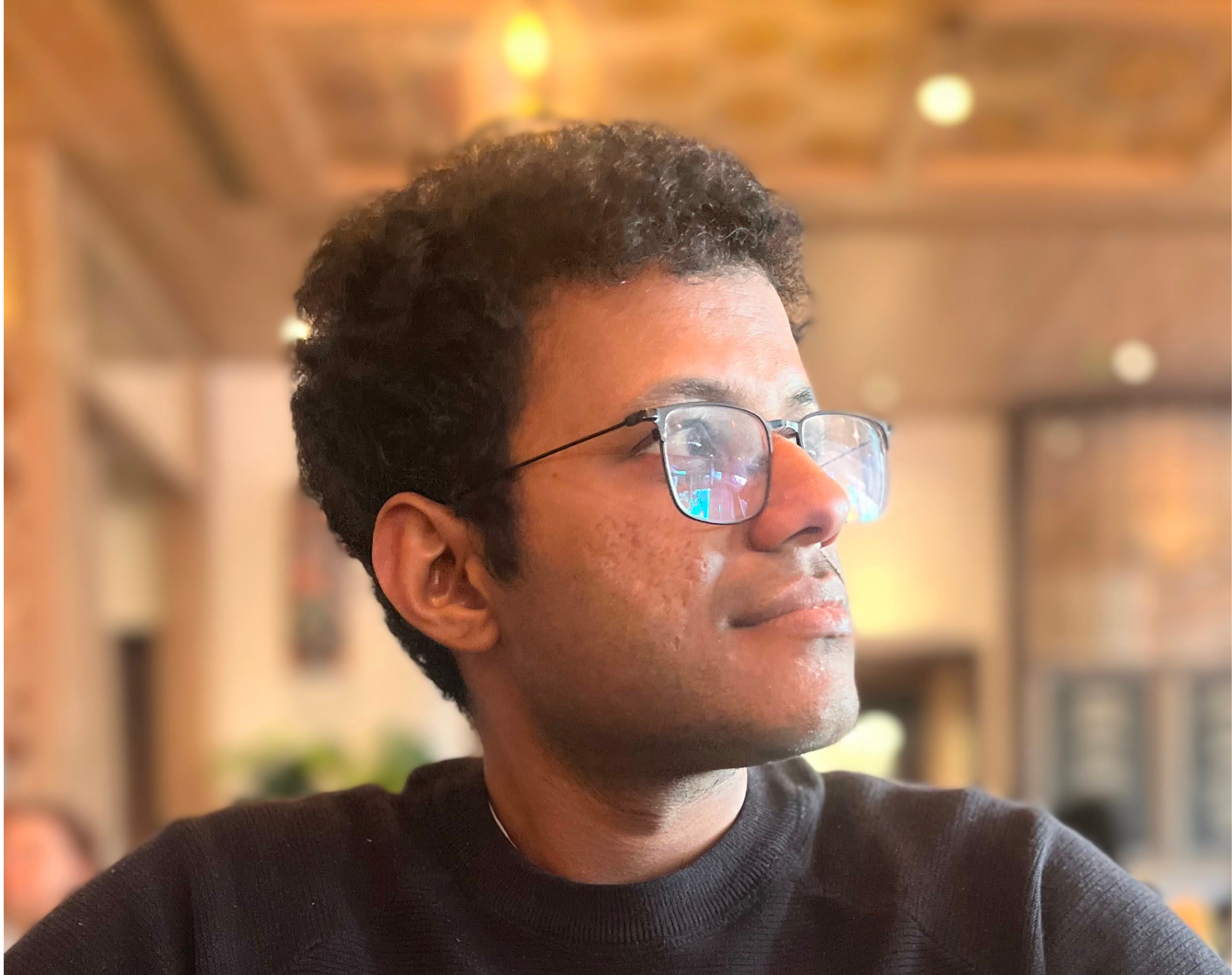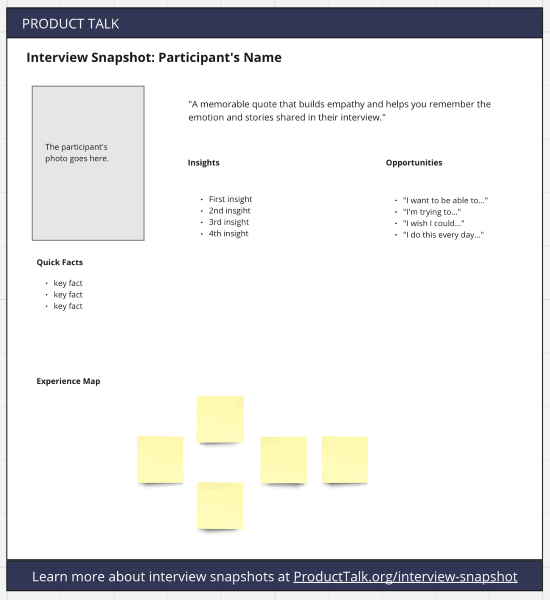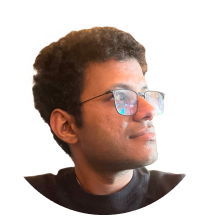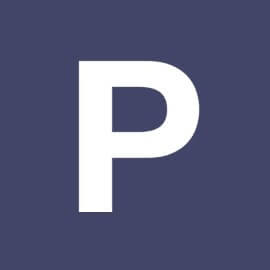When you actively hold a question in your mind, you start seeing potential answers and questions related to it pop up in your radar. The question and the answer co-evolve in a gracious dance enriching our understanding of the world and space around us. Questions act as your personal radar.
The textbook definition of a question is a sentence used to seek information. But it feels borderline criminal to reduce something as foundational as a question to something…transactional. We think in questions. If knowledge is a complex web inside the mind, each node is a question, and each connecting line the information you’ve picked up on the journey from node to node. The pursuit of knowledge is the accumulation of questions. They shape our identity as much by being asked as by being answered.
As Sindhu argues in her blog, a question is not merely a phrase used to seek information (and its borderline criminal to reduce it to such).
There’s an under-appreciated beauty in formulating a “good” question. What we ask, and how we ask it, determines what we'll discover. People often think about asking questions in ways that make sure the other person will have no choice but to answer it. But it’s nice to think about the practice of formulating questions as an art form in itself. Coming up with questions is also an act of creation. Understanding and honing the way you inquire about the world can be as active as getting answers to those inquiries.
Questions are great pickaxes. And when done right, it's an art form of its own. The more "impossible" the question is, the more profound the answers are. A problem "well put" is half-solved.
The more absurd, the more “impossible” the question, the more profound the answers.
— Tim Ferriss (@tferriss) October 17, 2023
Take, for instance, a question that investor Peter Thiel likes to ask himself and others: “If you have a 10-year plan of how to get [somewhere], you should ask: Why can’t you do this in 6… https://t.co/mY9A7az5ea
Conscious thinking is largely asking and answering questions in our own head. I've been recently obsessed with making these internal thought processes more refined after coming across this idea of 'algorithms of thought' (AoTs) — a special class of algorithms that can range from simple sequence of pre-defined steps to complex, branching questionnaires. In other words, can a thought be an algorithm?
Although there is a collective benefit of drafting better algorithms of thought, I had done this primarily as a selfish objective: to help think more clearly and make better decisions.
It's also not something which is recent and hipster. They have been around for centuries as a concept. Ranging from the storefront fortune-telling scam artist, to the Tarot and I-Ching, they've all been algorithms of thought in one way or the other. Questions that guide user to consider their own experiences in radically different perspectives, based on meanings assigned to randomly-selected cards or hexagrams.
From my perspective, algorithms of thought been around for centuries, encoded as meditative practices, rituals, scriptures, divinatory practices, theory manuals, apps, and workshops. One might even argue that certain compounds (DMT, LSD, psilocybin), given their ability to catalyze shifts in consciousness that, in turn, lead to durable, life-changing perceptions of the self and its place in the world, are algorithms of thought in chemical form.
These are some of my own AoTs I use on a day to day basis across various situations in life. Feel free to remix or rehash them as you see fit.
When I want to provide constructive criticism
I use this template to organise my feedback. If I want to quickly scan and drop suggestions, I use the ABCD framework below:
- What's amazing?
- What's boring?
- What's confusing?
- What didn't you believe?
When it comes to more detailed product roasts with much more thorough feedback, I use the Product Roast Checklist below

When I want to start a new project
If I'm dropped the ball all of a sudden towards a new project, I use these questions to organise my next steps:
- How long would it take to do X?
- What’s the next step to do X?
- What’s the best possible outcome for X? The worst possible outcome?
- Who can I ask about X?
- Why am I resisting X?
Whenever I'm facing a value-conflict
I might have taken a recent life decision that I'm feeling bitter about. I might even have some dilemmas on my core values, and want to rethink why and what I should do as a result of that. In such existential situations, I use this AoT:
- What legacy do you want to leave?
- What are you passionate about?
- When are you happiest in life?
- What gives you life?
- What do you value?
- What do you absolutely refuse to do?
- How do you measure success?
- How do you want people to remember you?
Whenever I'm user interview notes
When I take user interviews, I try my best to encapsulate the key observations from the call right away. Relying on memory might distort some of the key takeaways, and its important to synthesize quickly and carefully. I use this to take an 'Interview Snapshot' based on the framewoek shared by Teressa Torres:
- The name of the interview participant
- A photo of the interview participant
- Some quick facts about the interview participant
- A memorable quote from the interview
- A list of opportunities that you heard in the interview
- A list of insights from the interview
- An experience map that reflects the story that you collected in the interview

Whenever I'm brainstorming ideas
SCAMPER is a great technique to quickly come up with various ideas in a short time. The list might be exhaustive, and I usually don't go through the entire list all the time.
Substitue
- What can I substitute so as to make an improvement?
- How can I substitute the place, time, materials or people?
- Can I substitute one part for another or change any parts?
- Can I replace someone involved?
- Can I change the rules?
- Should I change the name?
- Can I use other ingredients or materials?
- Can I use other processes or procedures?
- Can I change its shape, colour, roughness, sound or smell?
- Can I use this idea for other projects?
- Can I change my feelings or attitude towards it?
Combine
- What ideas, materials, features, processes, people, products, or components can I combine?
- Can I combine or merge this or that with other objects?
- What can I combine so as to maximize the number of uses?
- What can I combine in order to lower the costs of production?
- Which materials could I combine?
- Where can I build synergy?
- Which are the best elements I can bring together so as to achieve a particular result?
Adapt
- Which part of the product could I change?
- Could I change the characteristics of a component?
- Can I seek inspiration in other products or processes, but in a different context?
- Does the history offer any solutions?
- Which ideas could I adapt, copy, or borrow from other people’s products?
- What processes should I adapt?
- Can I adapt the context or target group?
- What can I adapt in this or that way in order to make this result?
Modify
- What can I magnify or make larger?
- What can I tone down or delete?
- Could I exaggerate or overstate buttons, colours, size…?
- Could I grow the target group?
- What can be made higher, bigger, or stronger?
- Can I increase its speed or frequency?
- Can I add extra features?
- How can I add extra value?
- What can you remove or make smaller, condensed, lower, shorter or lighter—or streamline, split up or understate?
- What can I change in this way or that way so as to achieve such and such a result?
Put to Another Use
- What else can it be used for?
- How would a child use it?—an older person?
- How would people with different disabilities use it?
- Which other target group could benefit from this product?
- What other kind of user would need or want my product?
- Who or what else may be able to use it?
- Can it be used by people other than those it was originally intended for?
- Are there new ways to use it in its current shape or form?
- Would there be other possible uses if I were to modify the product?
- How can I reuse something in a certain way by doing what to it?
Eliminate
- What can I remove without altering its function?
- Can I reduce time or components?
- What would happen if I removed a component or part of it?
- Can I reduce effort?
- Can I cut costs?
- How can I simplify it?
- What’s non-essential or unnecessary?
- Can I eliminate the rules?
- Can I make it smaller?
- Can I split my product into different parts?
- I can eliminate what by doing what?
Rearrange
- What can I rearrange in some way – can I interchange components, the pattern, or the layout?
- Can I change the pace or schedule?
- What would I do if part of your problem, product or process worked in reverse?
- I can rearrange what in what way such that this happens?
When I have to choose between two options
This is a very tricky situation, and we go through this phase all the time. Recently, I ran this template to make an important decision on locatio--Should I choose Bangalore or London for the time being? The template is simple enough that you can run this on your mind too.
- What are the constraints?
- What are the options?
- What is the decision? And why have I taken this decision?
When I'm facing a blank state
I sometimes feel like my ink is dry. There aren't any new ideas worth writing about. In such periods while facing a blank state problem, I try to ask these questions to myself.
- What is inspiring me today?
- What did I learn this week?
- Is there any fun productivity hack?
- Some new skill you have learnt?
There is always something interesting enough for me to write about. This reframing sometimes helps me overcome my blank slate problem.
When I'm taking tough decisions
When taking crucial life decisions which are fuzzy, complex and circuitous, it just needs a bit more thought. Writing them down in this template helps formulate the thoughts better.
- When to use this template: When taking crucial life decisions which are fuzzy, complex and circuitous. When you make critical life decisions
- Time:
- Mental or Physical State:
- Situation or context:
- Problem statement of frame:
- Variables that govern the situation:
- Complications or complexities as you see them:
- Range of outcomes:
- Alternatives that were seriously considered and why they were not chosen?:
- What you expect to happen and the assigned probabilities to each outcome?:
- Outcome:
- Reflection (six months after the decision was made):
I sometime go back in time to critically reflect on these supposed 'one-way door' decisions to know if I had made the right calculated move. Decision logs are a fantastic way to improve in the art of decision making. Kevin Yien talks about this approach on the Lenny's podcast:
A live recording example of how I use decision logs in my day-to-day life through Roam Research's Daily Notes interface. As and when a critical decision pops up, I run the Decision log template to think through a particular key decision
When I'm journalling
On a weekly basis (looking backward)
- What did you love?
- What did you lack?
- What did you long for?
- What did you learn?
On a weekly basis (looking forward)
- How could you efficiently drain your energy this week?
- How might you strip this week of spontaneity & surprise?
- How can you ensure no creative work gets done this week?
- What's the biggest constraint on my output right now?
On a monthly basis (looking forward)
- What seems like play to you but work to others?
- What is the highest leverage activity you could execute this month?
- What are you optimising for in your life right now?
On a yearly basis (looking forward)
- What do I feel right now? (pretty hard question to answer)
- What do I need right now? (human needs like belonging, self-actualization, autonomy—or even basic physical needs like sleep, food, and hydration—being met?)
- What do I want from life in general? Is my current situation/role getting me closer to my ideal?
- Which constraints make me stick to the current situation/role/behavior/company/ person/? And do I give these constraints the power to hold me there or is it okay to challenge/push these constraints?
Whenever I'm pitching to an audience
Seth Godin's pitching template:
- What did this person [in the audience] believe before we got here?
- What do I want them to believe after they see this?
When I'm editing a writing draft
- Has the rhythm been created?
- Have the sentences been linked seamlessly?
- Are there any pieces that needs to be eliminated to avoid confusion?
- Are there any colourful, vivid details?
- Have all the unnecessary details been removed?
When I want to know my workmate better
These are a medley of questions that I ask team members in order to learn more about them as well as understand how I can best support them. I typically go over these questions within the first few 1:1s.
- What is most important to you in life? (what are your personal priorities)
- What kind of person do you aspire to become?
- What are your career goals and aspirations?
- Are you satisfied with your current career position? Why or why not?
- How do you feel about your current career path and trajectory?
- What generally motivates you?
- What keeps you engaged and motivated at work?
- When have you felt the most inspired at work? Why?
- When did you produce your best work? What contributed to that?
- What are your unique qualities?
- What are your strengths?
- Which skills would you like to develop further?
- What have you enjoyed the most about your previous roles or companies?
- How would you describe your ideal position, and why?
- What do you need to be successful in your role?
- How would you describe your ideal work environment, and why?
- What worked well and what didn’t with your previous manager?
- What type of feedback do you prefer?


